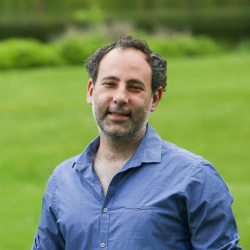$33,400 Awarded to CMNS Faculty, Staff, Students From New Do Good Campus Fund
Projects from the College of Computer, Mathematical, and Natural Sciences emphasize experiential learning in STEM.
The University of Maryland awarded $460,000 through the new Do Good Campus Fund to 27 grantees, including three from the College of Computer, Mathematical, and Natural Sciences.

The grantees—who include faculty, staff and student groups—all plan to expand or scale up efforts happening across University of Maryland, aimed at reimagining learning and serving humanity both inside and outside the classroom.
Senior Vice President and Provost Jennifer King Rice, the Do Good Campus Strategic Leadership Council and the Do Good Institute selected the award winners from 140 applications in this inaugural round. Additionally, arts-related projects are provided with matching funds through the university’s Arts for All initiative.
“These Do Good Campus Fund projects are shining examples of how University of Maryland students, faculty and staff are committed to creating solutions for a more equitable, sustainable and resilient world. With awardees representing all 12 colleges and schools, this program is a testament to our campuswide commitment to Do Good,” said Rice.
The Do Good Campus Fund is part of a suite of new campuswide investments to expand the university's leadership and impact to advance the public good. These investments also include the Do Good Campus Strategic Leadership Council, composed of senior administrators from colleges, schools and units across campus to celebrate the social impact already being made by faculty and staff across campus.
“Our first offering of the Do Good Campus Fund far surpassed our expectations in terms of the number of applicants, their impact to date and ambition for the future, and the diverse array of pathways they’re pursuing to do good,” said James Stillwell, faculty director, Do Good Campus. “I’m excited to watch and support the implementation of these incredible projects over the coming year.”
Experiential Learning: Data, Geometry and Outreach ($23,400)
This project aims to increase the number of underrepresented minority students in the STEM fields by creating a mathematics course for undergraduates that empowers them to apply their math skills through outreach to more than 500 high school students. The team is piloting the 400-level course, “Experiential Learning: Data, Geometry and Outreach.”
Bitcamp ($5,000)
Bitcamp, one of the largest collegiate hackathons on the East Coast, brings together more than 1,000 students annually to celebrate inclusivity and diversity in technology education. The new funding will enable organizers to provide a space for students to learn how to apply their skills to develop solutions that make the world a better place.
Terrapin Teachers: Game-Based Learning Facilitated by Future Mathematics Teachers ($5,000)
Students in Terrapin Teachers courses visit local classrooms in Prince George’s County public schools for early field placements. This project will update resources used in middle school classrooms with educationally rich games that aim to develop mathematical reasoning and computational fluency among students.







